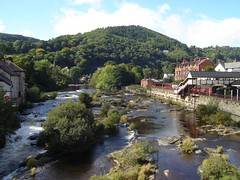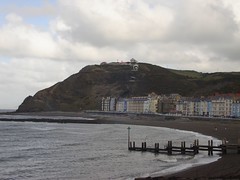Today, Sun creates yet another important relationship to add to our growing momentum. In an all-star alliance announced today, Sun and Google have begun a strategic relationship to promote and distribute their trail-blazing technologies. As part of the agreement, Sun will include the Google Toolbar as an option in downloads of the Java Runtime Environment from Java.com, Sun’s showcase and portal for Java technology enthusiasts and developers. The new functionality will be available soon.
In keeping with this precedent-setting relationship, executives from Sun and Google broadcast the agreement from the Computer History Museum in Mountain View, California, the world’s largest museum for preserving and presenting the history and influence of the computing revolution.
Watch the press conference Webcast.
“As a leader in free and open source software, Sun has long recognized that network innovation is vital to the evolution of the global economy,” said Scott McNealy, chief executive officer, Sun Microsystems. “Working with Google will make our technologies available more broadly, increase options for users, lower barriers, and expand participation worldwide.”
Java Momentum Good for Google
Java is one of the most recognized and respected technology brands in the world. Celebrating its 10th birthday this year, Java technology is everywhere and supports a $100 billion market.
Due to the popularity of Java on the desktop, downloads of Java have more than doubled year over year, reaching 20 million per month–and now users can also get the Google Toolbar. With the Java download and the Google Toolbar, users worldwide can benefit from the technology that is powering a new wave of Internet growth–and participate in its opportunities.
Trailblazing Technologies
Sun and Google are leaders in the new economy and at the forefront of the Participation Age. Users and developers alike are drawn to Sun and Google because of their embrace of sharing and innovation.
“Each company is blazing new trails with their technology and commitment to participation and open standards,” says Mark Herring, Sun director of Java Brand and Community Marketing. “The collaboration between these two powerhouses is a milestone for the industry. By working together, Sun and Google are ushering in a new era of dynamic, interactive technology solutions.”
Only the Beginning
The distribution of Java and the Google Toolbar underscores Google’s advocacy of Java technology. Google is a member of the Java Community Process (JCP) executive council and actively participates in shaping the next generation of the Java platform as part of expert groups for Java Specification Requests.
The agreement between Sun and Google also kicks off further collaboration between the companies on projects like OpenOffice.org, the open source productivity suite that is the world’s leading suite on the Solaris Operating System (Solaris OS) and Linux–and the leading alternative suite on Microsoft Windows.
“Google has long been part of the Java technology ecosystem, and today’s announcement highlights this relationship,” says Herring. “Sun is pleased to be working even more closely with a company that also values innovation and breaking down barriers. The agreement is the next big step in a great partnership.”
The bit I have underlined is the interesting bit for me. I wonder when this might become a reality? The speed at which Google has been knocking out products recently, it would not surprise me if this happened pretty soon.



